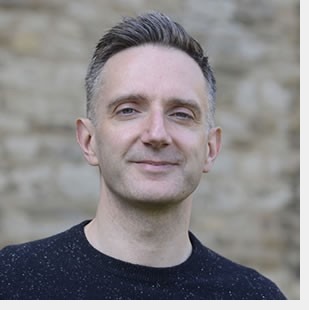| View this email online if it doesn't display correctly |
| |
|
|
 |
I’ve just read Yuval Noah Harari’s new book 21 Lessons for the 21stCentury. I thoroughly enjoyed his last one Homo Deus: A Brief History of Tomorrow. And Sapiens, which I haven’t read, catapulted the Israeli academic into global stardom. So, I thought 21 Lessons would be another winner. And I think it is. But not because of the richness of the content more visible in his other writings, but rather for how I felt after reading it.
This loose collection of essays from some of his newspaper articles and lectures covers pretty much everything from civilisation, war and religion to nationalism, education and meditation. The sheer breadth of his work is impressive and somehow, he connects diverse themes together in fresh ways and with real insight. One of his final chapters Meaning particularly grabbed me. In it he demolishes the idea of ‘life as a story’ and the many rituals we use to make these narratives real. Religious, ideological and institutional stories all get a bashing. Even individual experiences of love and romance. He says,
Any story is wrong, simply for being a story. The universe just doesn’t work like a story. So why do people believe these fictions? One reason is that their personal identity is built on the story. People are taught to believe in the story from early childhood. They hear it from their parents, their teachers, their neighbours and the general culture long before they develop the intellectual and emotional independence necessary to question and verify such stories. By the time their intellect matures, they are so heavily invested in the story that they are far more likely to use their intellect to rationalise the story than doubt it.
When I finished the book, I felt exhilarated. Not because I agreed with most of his thinking. In fact, I found some of his conclusions contradictory or a bit trite at times. And whilst he’s been called ‘the guru for our times,’ no person can possibly be an expert in so many complex areas. But what Harari does so well is encourage the reader to expand their mind in order to glimpse the enormity of history and the universe. He provokes and prods us to elevate ourselves above the minutiae we get stuck in, to situate ourselves within a larger time-span, and to contemplate our future from a much wider and more well-informed perspective. This is something, I think all religions have failed on over the past decades. And it’s one reason why many people find religious leaders irrelevant. They have rarely much to talk about outside their narrow circle of interest. They don’t make life feel big. Reading Harari helps me escape my own small thinking. It makes me want to study all the things I’ll never have time for, and (despite the author’s view that religious belief is utter hocus pocus) to keep contemplating God in places and ways I hadn’t thought of.
The Revd Alan Ramsey
Associate Priest |
| | The Week Ahead
This Sunday
Sunday 16 September The Sixteenth Sunday after Trinity 10:30 Sung Eucharist
Preacher: The Revd Dr Daniel Inman (Diocesan Director of Ordinands, Chichester)
15:30 Organ Vespers
Organist: Timothy Wakerell (New College)
Next Week
Monday, Hildegard, 1179 09.00 Morning Prayer - Chancel 12.15 Eucharist - Chancel
Tuesday 09.00 Morning Prayer - Chancel
12.15 Eucharist - Chancel
Wednesday Theodore, 690 09.00 Morning Prayer - Chancel
12.15 Eucharist - Chancel
Thursday John Coleridge Patteson, 1871 09.00 Morning Prayer - Chancel 12.15 Eucharist - Chancel
Friday Matthew 09.00 Morning Prayer - Chancel
12.15 Eucharist - Chancel
Saturday
Next Sunday
Sunday 23 September The Seventeenth Sunday after Trinity
10:30 Sung Eucharist
Preacher: The Revd Dr William Lamb 12:00 Pilgrimage to Littlemore
15:30 Arts Society Service
|
| |
|
| Organ Vespers
This afternoon Organ Vespers will take place in the Nave at 15:30. This service is based on the ancient monastic office of Vespers, interweaving Scripture readings and prayers with organ music and hymns. The climax of the reflections at Vespers is the Magnificat, the song Mary expressed in joy when told she would bear the Christ-Child. The Organist is Tim Wakerell from New College.
|
| | | Littlemore Pilgrimage On Sunday 23 September, we will have our annual pilgrimage to Littlemore to raise funds for the Newman Meeting Place. The church there was built by John Henry Newman, who was the Vicar of St Mary’s from 1828-1843.Everyone is welcome and sponsorship forms are available. Please bring appropriate clothing and a packed lunch. There will be hot drinks and cake on arrival.
|
| | Arts Society
On Sunday 23 September, there will be a Service of Thanksgiving for the Arts Society at 15:30. This year the Arts Society marks its fiftieth anniversary, both nationally and here in the Wyvern Area. The Arts Society is a network of over 90,000 people worldwide, brought together through a shared curiosity for the arts and our artistic heritage.
|
| | | St Mary's Volunteers Fair Many members of St Mary’s congregation are already involved with and support voluntary organisations– e.g. Oxford Food Bank, Gatehouse, Christian Aid, prison visiting, Home Start, Parkinson’s Association, etc. We are planning a ‘Volunteers Fair’ to showcase this work and to encourage others to get involved. There is to be a planning meeting in the Old Library at 12noon on Sunday 16 September. The Fair itself will take place after the service on Sunday, 14 October. If you would like to be involved, please contact: Margaret Lipscomb (M.Lipscomb@ntlworld.com) or Janet Greenland (janetgreenland@gmail.com).
|
| | |